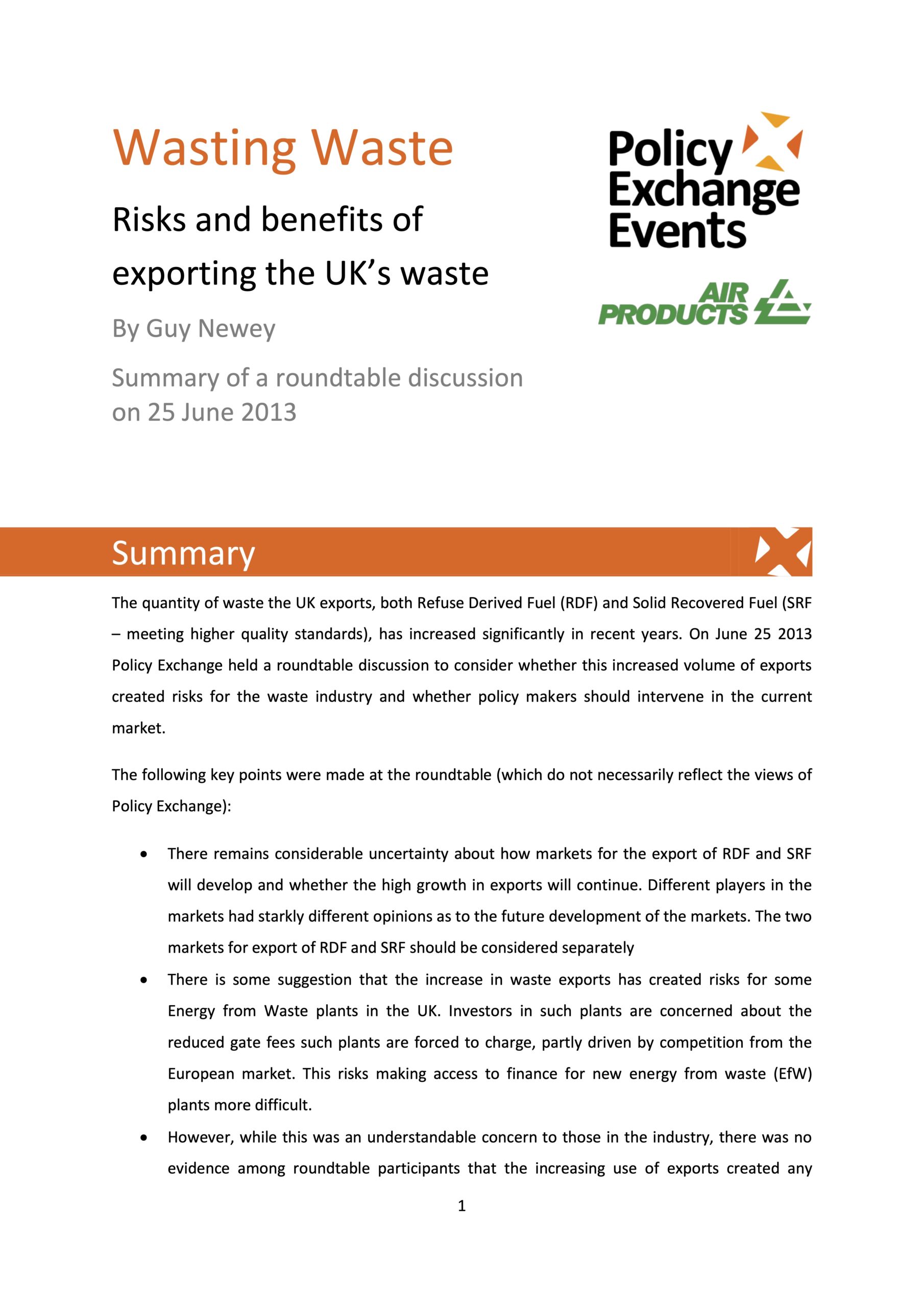
Wasting Waste: Risks and benefits of exporting the UK’s waste
The quantity of waste the UK exports, both Refuse Derived Fuel (RDF) and Solid Recovered Fuel (SRF – meeting higher quality standards), has increased significantly in recent years. On June 25 2013 Policy Exchange held a roundtable discussion to consider whether this increased volume of exports created risks for the waste industry and whether policy makers should intervene in the current market.
The following key points were made at the roundtable (which do not necessarily reflect the views of Policy Exchange):
- There remains considerable uncertainty about how markets for the export of RDF and SRF will develop and whether the high growth in exports will continue. Different players in the markets had starkly different opinions as to the future development of the markets. The two markets for export of RDF and SRF should be considered separately
- There is some suggestion that the increase in waste exports has created risks for some Energy from Waste plants in the UK. Investors in such plants are concerned about the reduced gate fees such plants are forced to charge, partly driven by competition from the European market. This risks making access to finance for new energy from waste (EfW) plants more difficult.
- However, while this was an understandable concern to those in the industry, there was no evidence among roundtable participants that the increasing use of exports created any greater environmental damage or wider economic loss (i.e. higher costs to consumers). Participants could not foresee any major political risks with exporting waste.
- Such risks were also minimal when compared with the lack of certainty about future direction of energy policy and what that would mean for investors in EfW and/or co-combustion plants.
- There was no evidence that European EfW industries and other buyers of UK exported waste had established any unfair advantages compared to UK players. The major advantage was that EfW plant had already been built. They had also benefited from greater co-ordination over what they do with heat generated by EfW plants.
- There was considerable concern among participants about illegal activity in the waste industry in the UK.
- There was some discussion about whether the UK should have more sophisticated plans for how it deals with wider issues of how it uses its resources, including waste.
In conclusion, there was little support for the idea that government should intervene in the current waste exports market (apart from clamping down on illegal activity). The market is maturing and there remains considerable uncertainty about how it will develop. Market participants have divergent views on this. There is some suggestion that this uncertainty creates risks for investors in Energy from Waste plants. However, managing and reacting to these risks is part of a functioning market.

